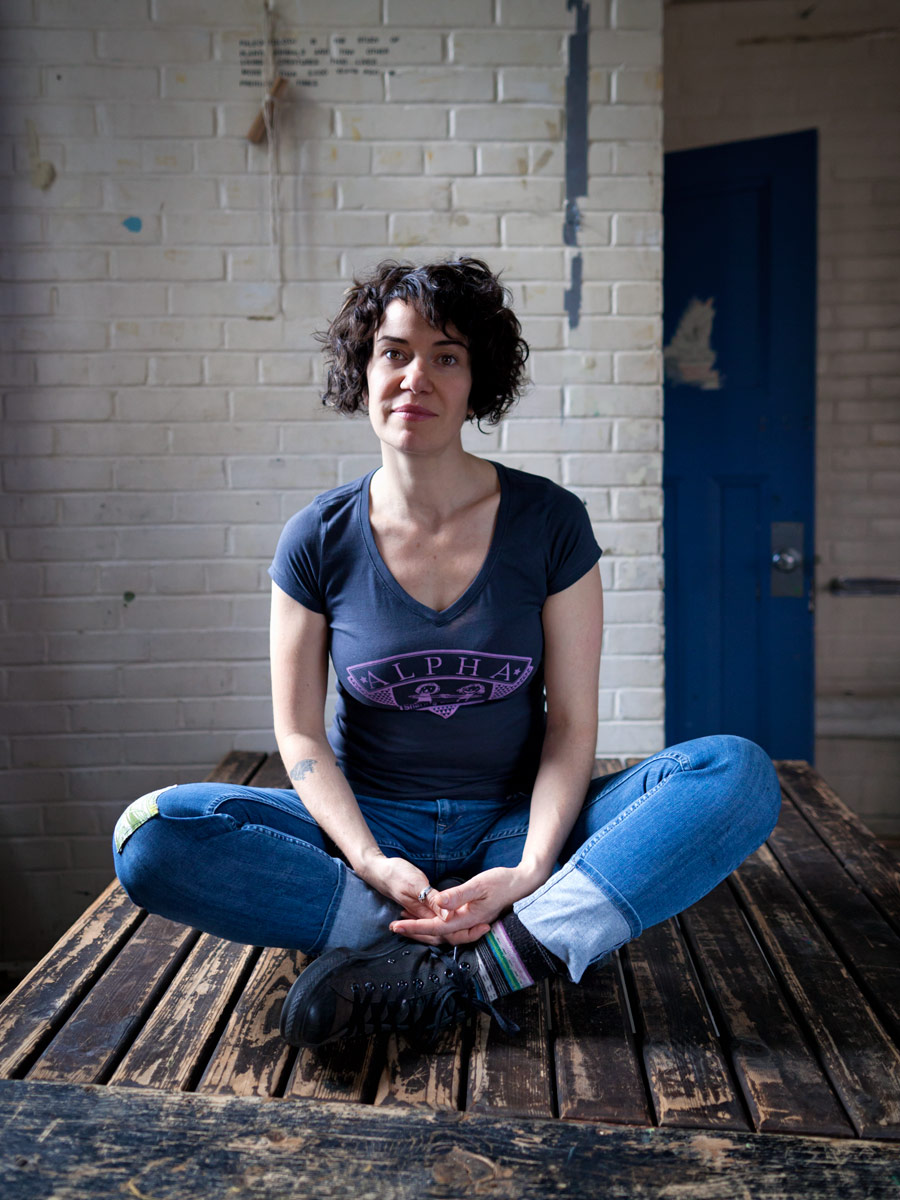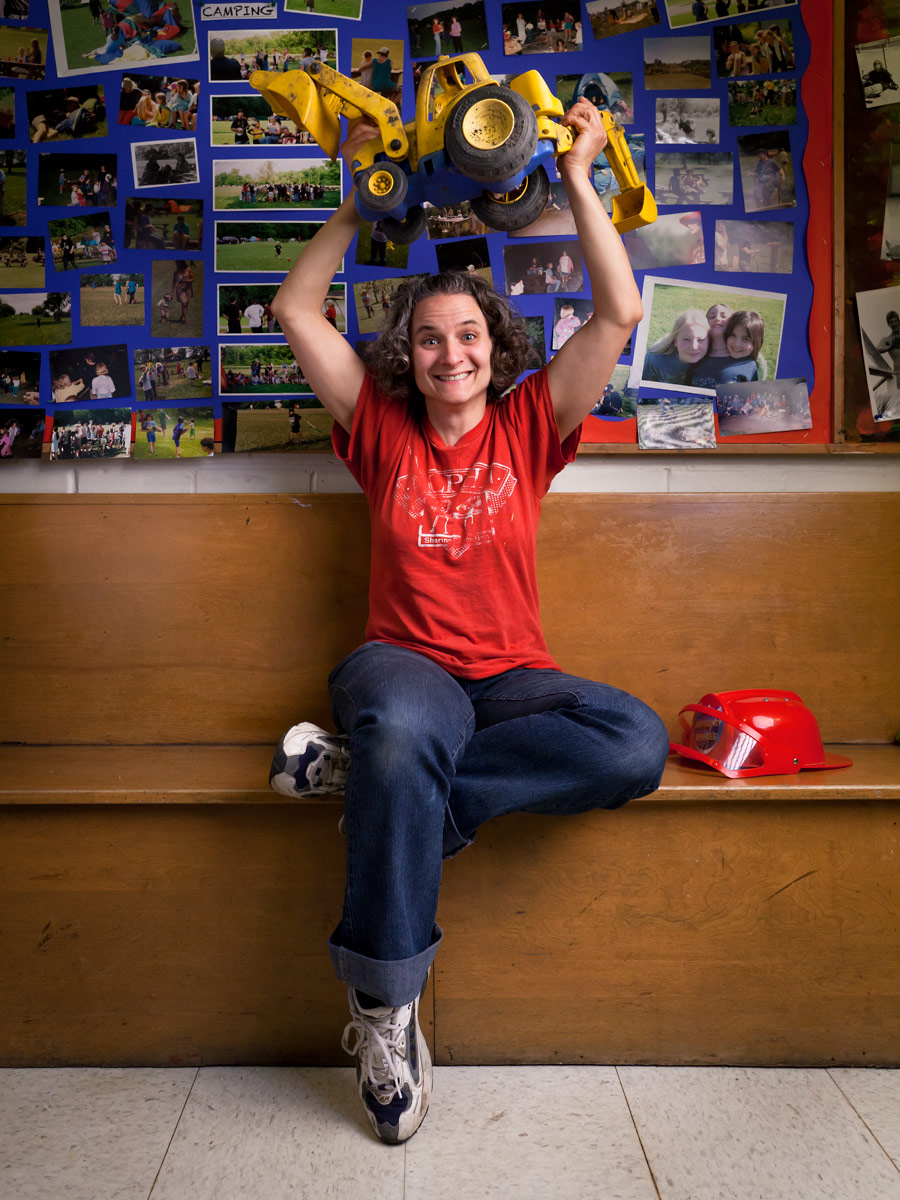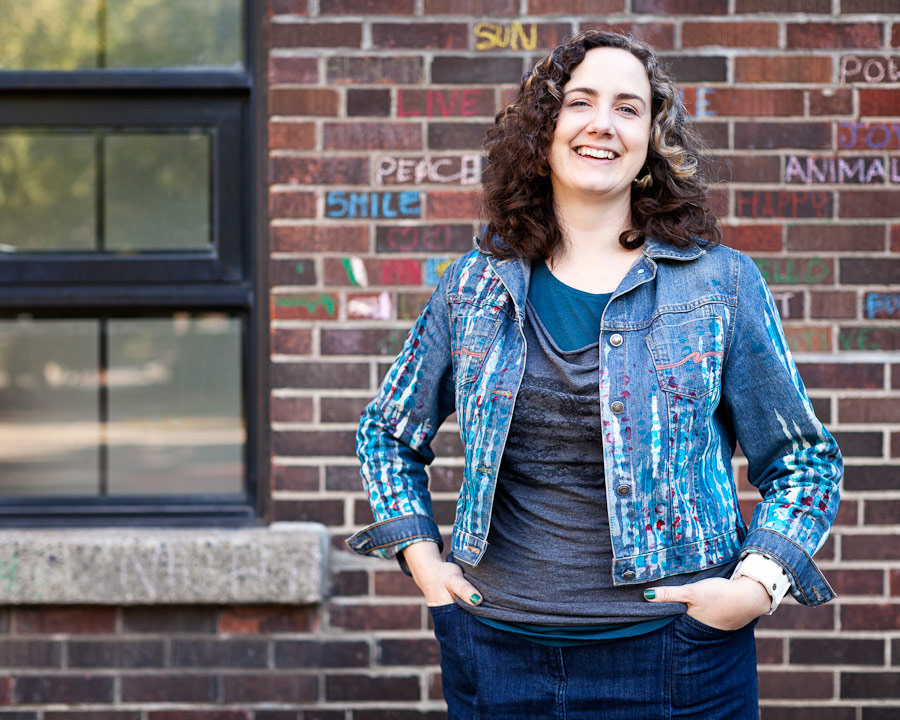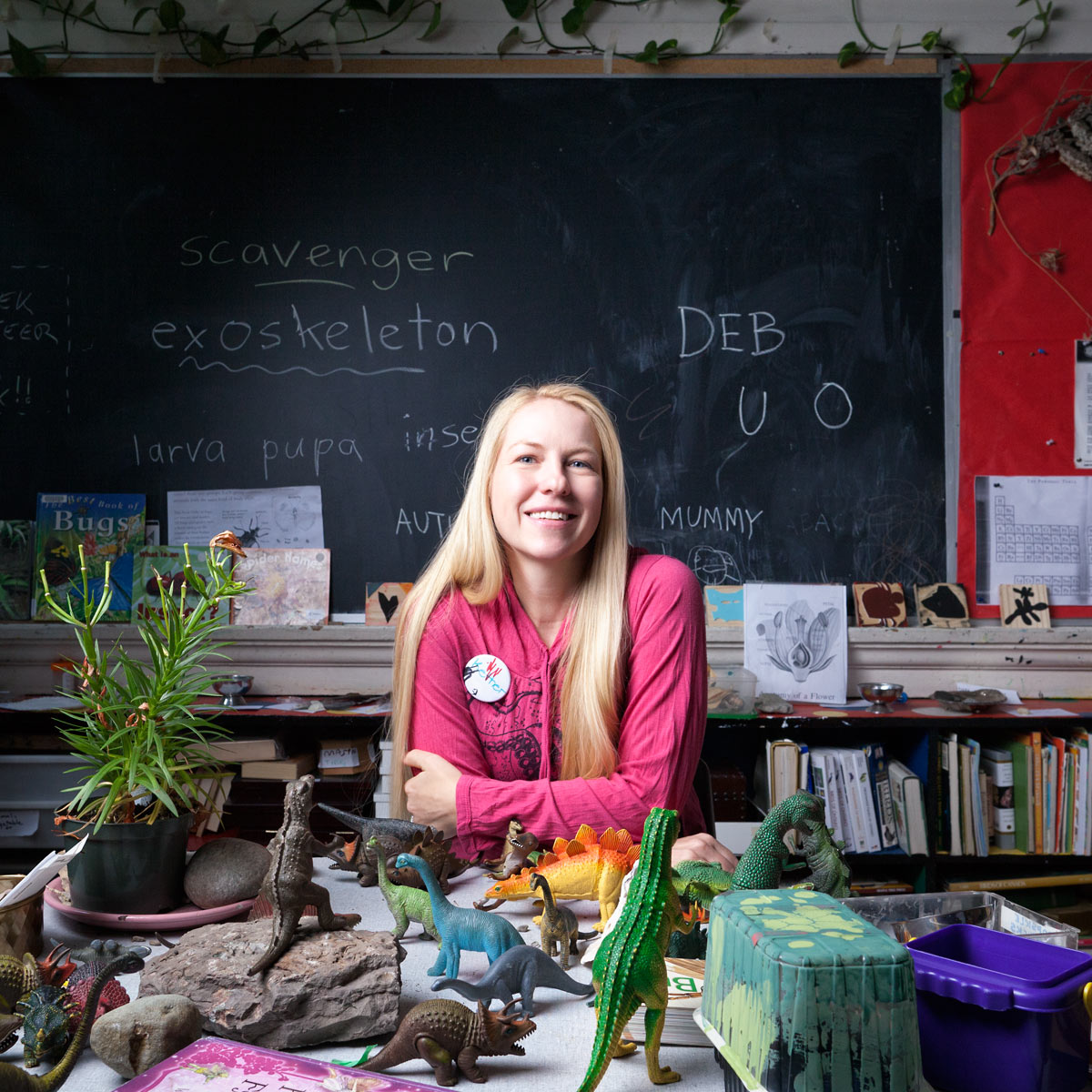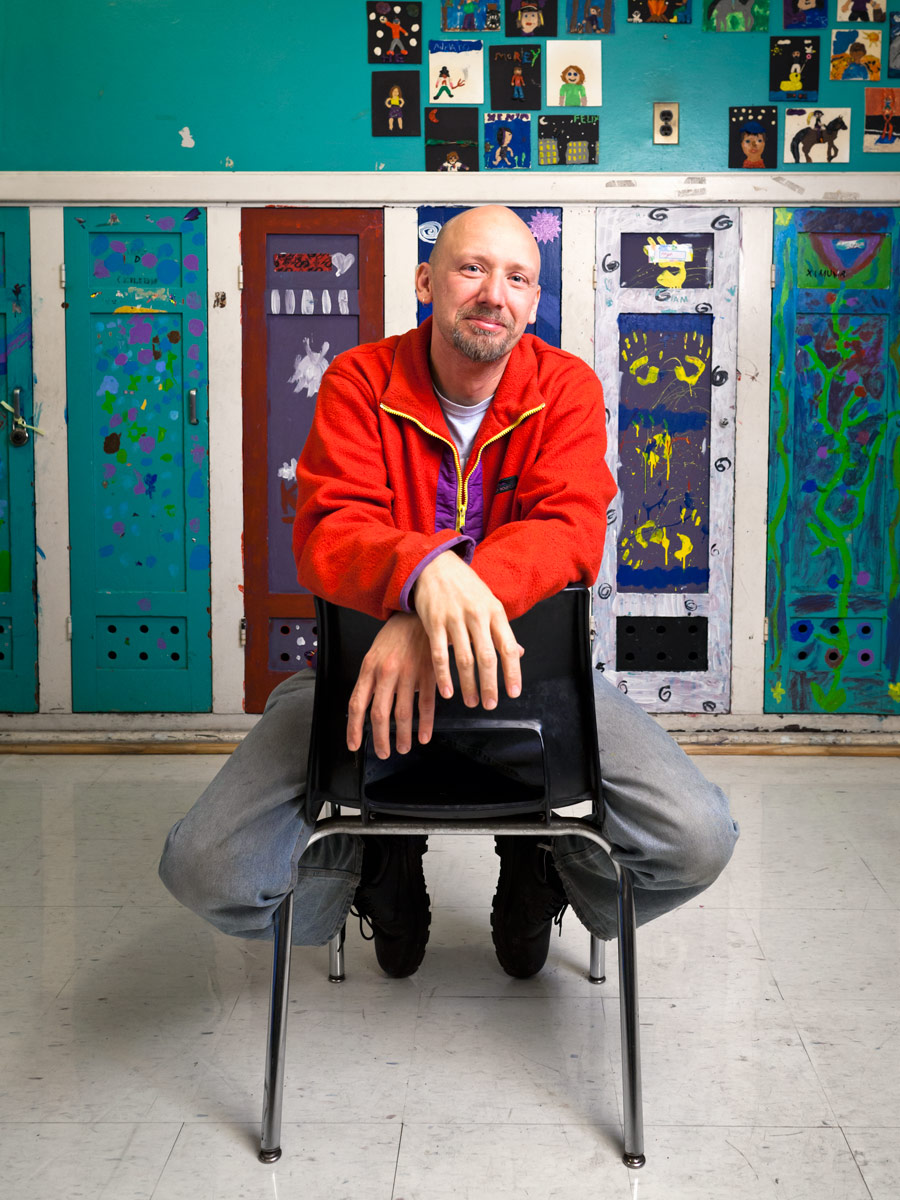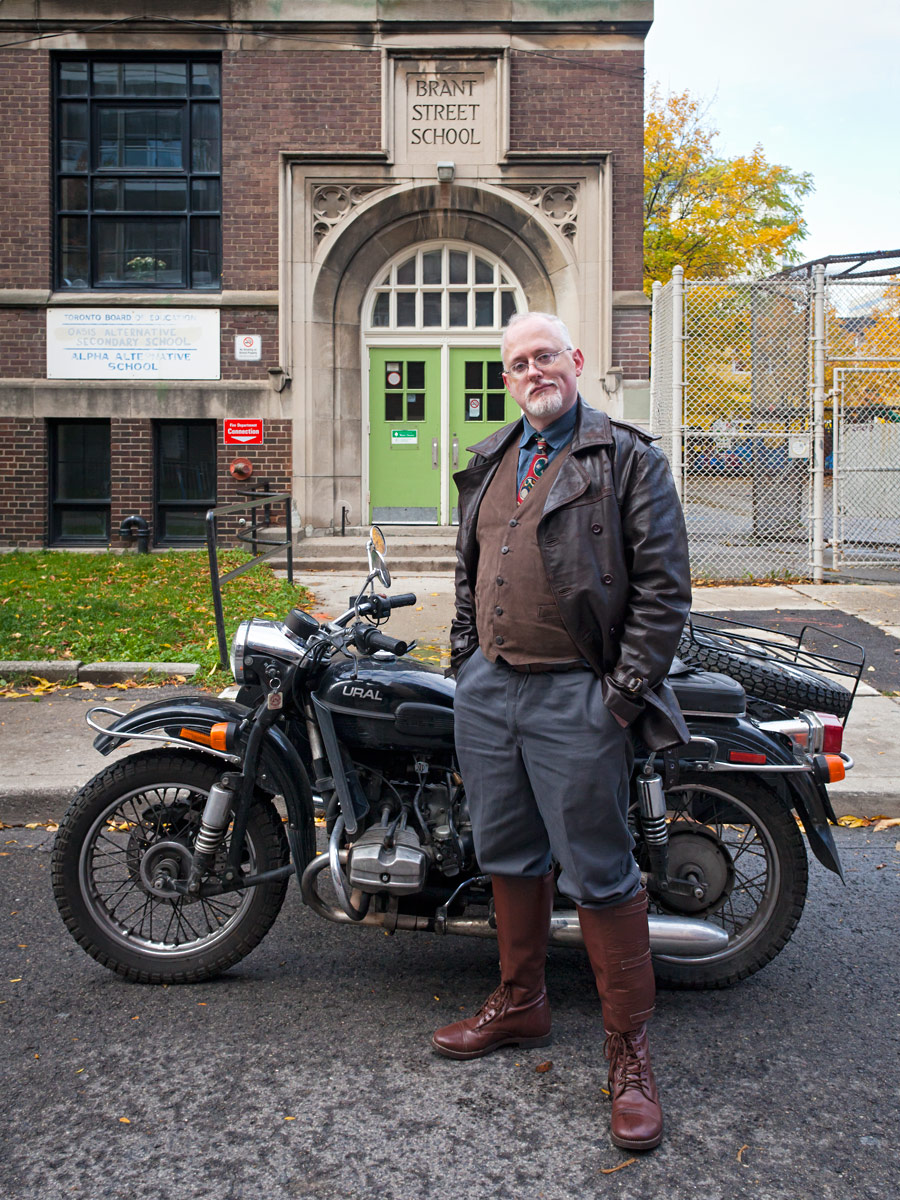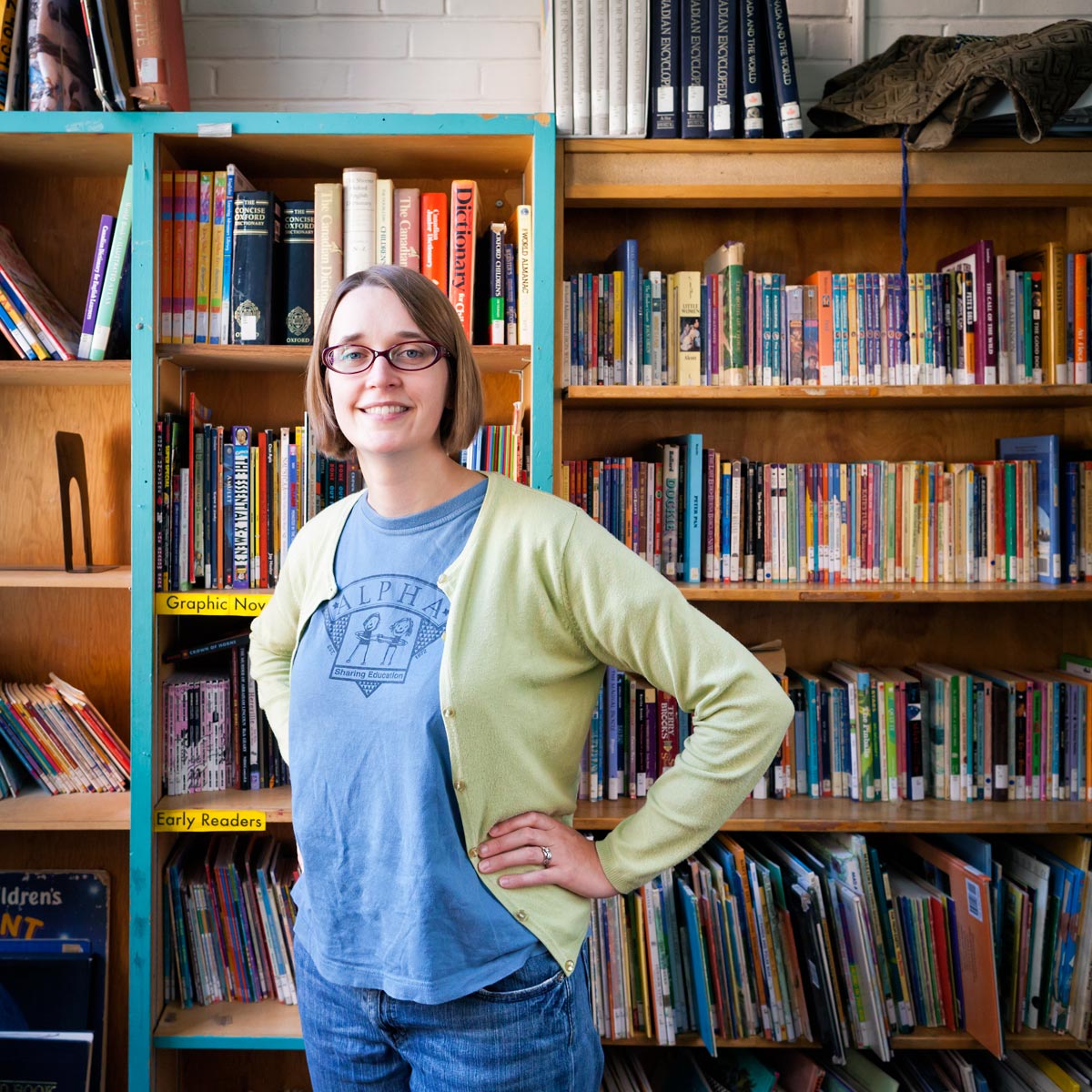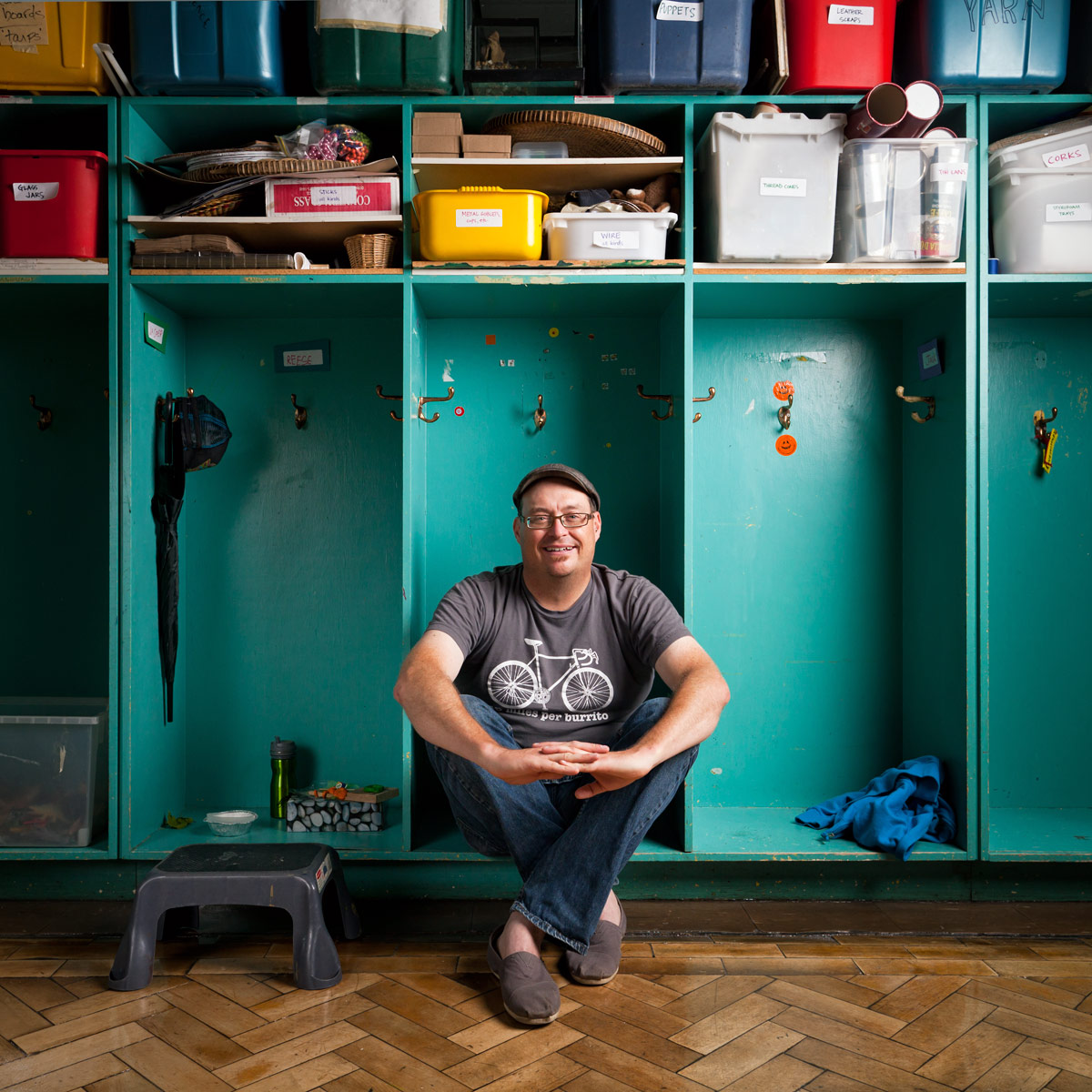“The most important lesson of ALPHA was love”
Alpha Alternative School 1972/2012:
Crawford (Crocky) Teasdale
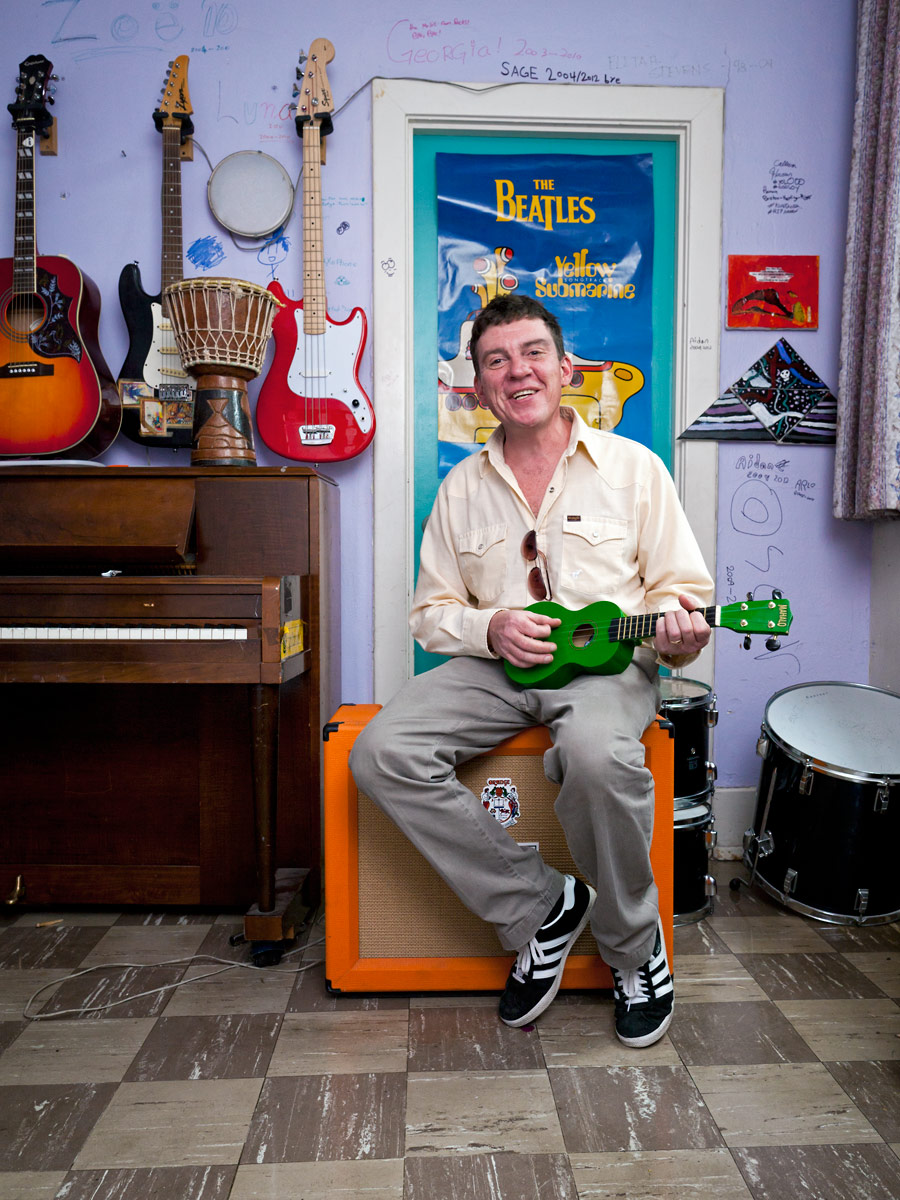
Halfway through grade two I was bored at school, and I changed to Alpha Alternative School. I’d finished all my math books and spelling books and English books early, and I had nothing to do. ALPHA was great because there was some creativity, which was really lacking in the public school system. I remember playing the piano there a lot. There was a piano in the hallway, and I loved it. I wanted to play guitar but my hands weren’t big enough, so I just mostly taught myself to play piano, and I guess I played the dulcimer. I remember our teacher Mike, he used to play the ‘I love peanut butter’ song, and he taught me how to play that on the piano. In a couple years my hands were bigger and I got a guitar and taught myself how to play. I can also remember collaborating on animated films at ALPHA, painting cels and putting them under a camera and moving them around.
When I was nine, ALPHA teacher Mike McCarthy helped me get into a catalyst program [a program for high school students who wanted to audit university courses] at OISE* …I’d go there after school one day a week and learn BASIC programming. I remember I had to sign out two big floppy discs that were the size of records: one of them made the computer start up, and the other one was for my data. I went on the Internet in 1977… I got to discuss BASIC programming [through what we would now call chat] with someone from California who was much older than me, at a university. There would be a terminal window and you’d type something and the other person would see it and they’d type back. I just thought this was amazing—I couldn’t believe it—and when I told people they didn’t believe me. I was nine, and most of the people who were doing the course were much older than me, they were in high school. I just went and did it. It wasn’t that hard, and I learned to do BASIC programming and that helped me down the road a lot.
They always told me at ALPHA that the future’s in computers, and that you should learn your math and your computer skills. So I did. We saved up, my brothers and I, and bought a Commodore PET, and I used it for programming, and they used it for playing games. I mostly would just get games and then look at the code, and try and change the graphics or the order of things. I learned that you could resave the file and make the graphics different. So I took some games and I made them into my own games. I didn’t really program them, I just stole someone else’s game and changed the way it looked and played. I was getting on to eleven by then.
Then I was in an accident in 1978, I got run over by a car, and I spent two years in bed. So I did a lot of guitar playing in those two years…when that was all done I got into a band with some friends. We were called Slightly Damaged, we did psychedelic punk rock. After that I moved on and got a reputation as a good guitar player, so other bands would hire me, and I did some session work.
When I was 18 my computer skills landed me a great job at Colorization, doing animation on a Dubner computer. I was also in a band called Neon Rome, and I was accepted to the Faculty of Music at U of T, so I had to decide what I was going to do. I decided to work with Neon Rome. We were going to be signed to Virgin Records, and Bruce McDonald’s first film was about us. We had a treatment and everything, and it was all ready to go, and then our singer decided that he was going to take a vow of silence for a couple of years, and basically we didn’t do the movie and the band fell apart. It was very sad. Our singer Neal’s little brother’s band ended up doing the movie, and it won the first prize for the film festival, and he went on to become very successful, and our band would have gone on to be very successful if our record had come out and our movie had come out. But things happen for a reason, and you can’t let it get you down. I kept doing my job—I decided that being a musician wasn’t the life that I wanted, I didn’t want to travel all the time and be poor, I wanted some stability.
I was still working at Colorization, and I learned a lot about computers and animation, and I managed to get a job at Canada A.M. doing the weather graphics. Since then I’ve worked mostly in television and sports, so it all fit together, what I learned at school and what I ended up doing. Animation is what I do now. I have worked as an art director, creative director, and manager. I had a band called Crockstar, and we broke up around 2003, but we still get together, and we play shows quite a bit. In Crockstar I write the songs and I sing them, and I play the guitar and the harmonica sometimes, and once in a while I play the piano…I also play the violin, the mandolin, and the accordion, but I don’t do that in the band.
The most important lesson of ALPHA was love. So many wonderful Alpha people taught me to love. A John Lennon quote says it all for me… “There are two basic motivating forces: fear and love. When we are afraid, we pull back from life. When we are in love, we open to all that life has to offer with passion, excitement, and acceptance. We need to learn to love ourselves first, in all our glory and our imperfections. If we cannot love ourselves, we cannot fully open to our ability to love others or our potential to create. Evolution and all hopes for a better world rest in the fearlessness and open-hearted vision of people who embrace life.”
—Crawford (Crocky) Teasdale
* The Ontario Institute for Studies in Education, now part of the University of Toronto
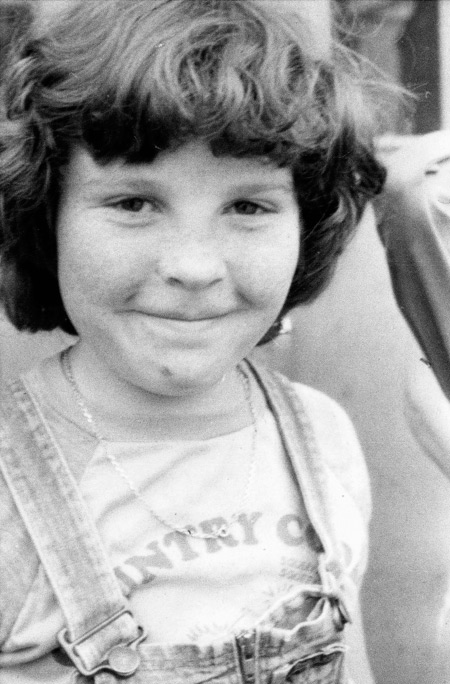
Crawford (Crocky) Teasdale
ALPHA 1973 to 1978, ages 7–8 & 10–11. Studied at the Royal Conservatory of Music. Works as a graphic designer at Maple Leaf Sports and Entertainment. Makes music.
Colour photo by Michael Barker
Black and white photo by F. Robert Openshaw
Text and Interview by Ariel Fielding
